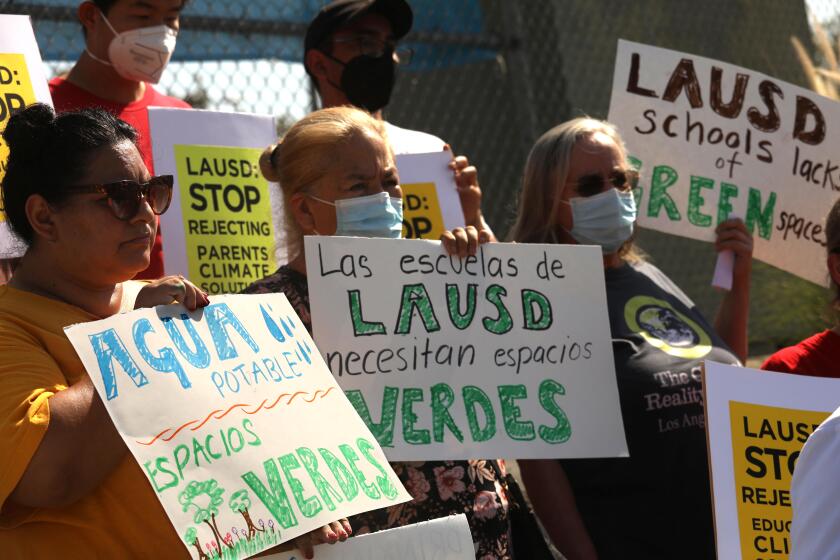Scotland will do better staying with Britain than going solo
- Share via
A majority of Scottish voters have decided that the risks of independence outweigh the romantic vision of a Scotland liberated from union with the rest of Britain. It was not much noted, but one of those risks could have been small but important parts of the new country choosing to split off and take with them the oil reserves on which the viability of Scottish independence would have depended.
On Thursday, close to 90% of Scotland’s voting population turned out to decide a simple but monumental question: Should they end their union with the rest of the United Kingdom? On the “yes” side were dreamers who believed the ancient region on the northern third of Britain could become a new Sweden, pacific in international affairs and egalitarian at home with a generous social safety net paid for with revenue from North Sea oil. On the “no” side were doubters who were convinced that Scotland, without the British pound and bereft of major companies and banks driven to pull up stakes and relocate to London, would become an economic basket case like Greece or Spain, even with the oil money.
The dreamers had enthusiasm and hope, but the doubters won.
Among the independence skeptics were most of the voters in Shetland and Orkney, the island clusters in the far north where the much-coveted oil lies deep below the sea. Alistair Carmichael, the Liberal Democrat MP who represents Shetland and Orkney in the British Parliament, told the Guardian newspaper that his constituents were so opposed to Scottish independence that they might very well push to become a self-governing territory under Queen Elizabeth II. In fact, just weeks ago the Scottish government rebuffed a petition from those islanders who were asking for a referendum to decide whether they would divorce themselves from Scotland.
Just as many Scots cling to a national identity apart from Britain, folks on Shetland have an identity apart from Scotland. The archipelago was part of Norway until the 15thcentury and, geographically, is closer to Norway than to Edinburgh, the Scottish capital. If self-determination was to be the governing principle, the islanders would have had as much right to divorce themselves from Scotland as the Scots did to split from the rest of Britain and that would have been more than a wee bit inconvenient for the Scots if they lost their oil in the process.
Throughout Europe there are people who think life would be better if they cut ties with some bigger entity and took charge of their own region. Catalonians have long agitated to separate from Spain. Flemish Belgians want to break up with French Belgians. Italians in the north want to say arrivederci to Italians in the south.
Even within the United States, this urge to break the ties that bind is not uncommon. Californians up near the Oregon border want to form their own state free of dictates from Sacramento and liberated from the power of liberal voters in San Francisco and Los Angeles. In 2013, several rural counties in Colorado took a vote on breaking off from the rest of the state. Texas politicians do themselves no harm when they rail against Washington and talk about becoming an independent country once again.
Independence is an alluring idea -- it worked pretty well for 13 British colonies in 1776; less well for 11 Confederate states in 1861 -- but it is not always a practical one. For a lot of reasons, the northern counties are better off remaining part of California, Texas is better off being part of the U.S., and Scotland will do better pushing for devolution of power within the United Kingdom than trying to make its way in the world as one more tiny country without a currency to call its own.
Bigger is not always better, but sticking together usually is.
More to Read
A cure for the common opinion
Get thought-provoking perspectives with our weekly newsletter.
You may occasionally receive promotional content from the Los Angeles Times.








